Het arrangement 13.1 The doctor - hv12 is gemaakt met Wikiwijs van Kennisnet. Wikiwijs is hét onderwijsplatform waar je leermiddelen zoekt, maakt en deelt.
- Auteur
- Laatst gewijzigd
- 11-05-2025 19:29:04
- Licentie
-
Dit lesmateriaal is gepubliceerd onder de Creative Commons Naamsvermelding-GelijkDelen 4.0 Internationale licentie. Dit houdt in dat je onder de voorwaarde van naamsvermelding en publicatie onder dezelfde licentie vrij bent om:
- het werk te delen - te kopiëren, te verspreiden en door te geven via elk medium of bestandsformaat
- het werk te bewerken - te remixen, te veranderen en afgeleide werken te maken
- voor alle doeleinden, inclusief commerciële doeleinden.
Meer informatie over de CC Naamsvermelding-GelijkDelen 4.0 Internationale licentie.
Aanvullende informatie over dit lesmateriaal
Van dit lesmateriaal is de volgende aanvullende informatie beschikbaar:
- Toelichting
- Deze les valt onder de arrangeerbare leerlijn van de Stercollectie voor Engels voor havo en vwo, leerjaar 1 en 2. Dit is thema 13 'Health and welfare'. Het onderwerp van deze les is: The doctor. In deze les staat de (huis)arts centraal met daarbij de enkele redenen waarvoor je naar de dokter zou moeten (bijv. injury - verwondingen) en wat de dokter kan doen. De grammaticaopdracht behandelt de 'future' aan de hand van het woord 'will'.
- Leerniveau
- VWO 2; HAVO 1; VWO 1; HAVO 2;
- Leerinhoud en doelen
- Engels;
- Eindgebruiker
- leerling/student
- Moeilijkheidsgraad
- gemiddeld
- Studiebelasting
- 1 uur 40 minuten
- Trefwoorden
- (huis)arts, arrangeerbaar, engels, future, hv12, injury - verwonding, stercollectie, the doctor





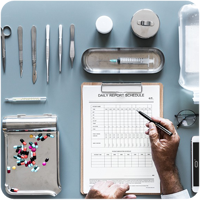
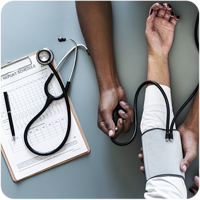 Study the vocabulary. (10 minutes)
Study the vocabulary. (10 minutes)
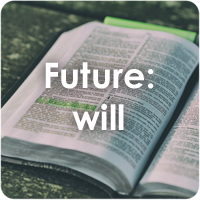

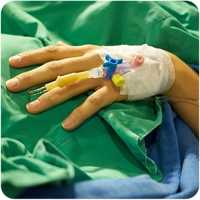
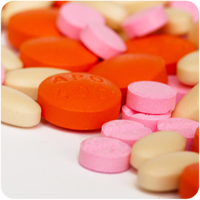
 What have you learnt in this double period?
What have you learnt in this double period?